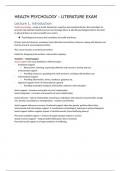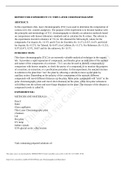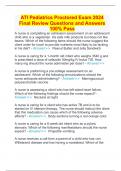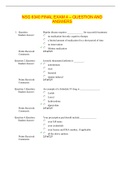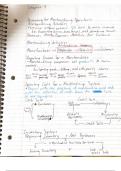Samenvatting
Summary Health Psychology Literature (Master Health Sciences VU)
- Instelling
- Vrije Universiteit Amsterdam (VU)
Summary of all exam literature and materials used in the seminars of the course Health Psychology. I passed my exam with a 9.0 with this summary!
[Meer zien]
